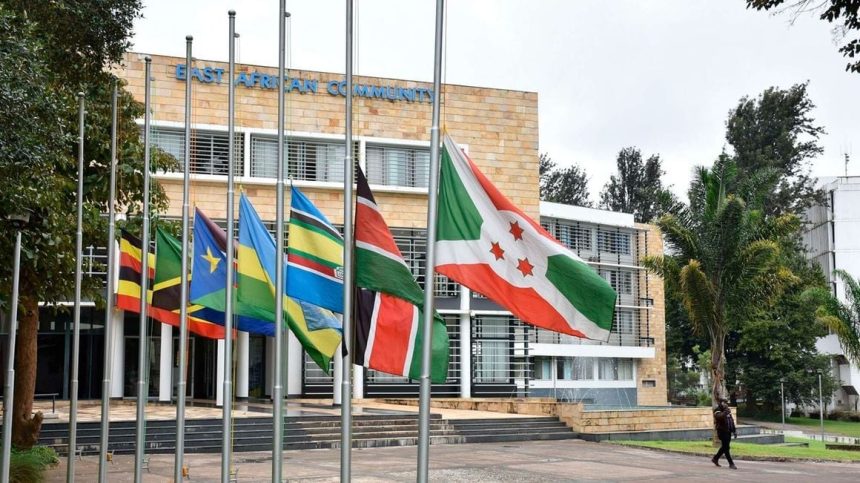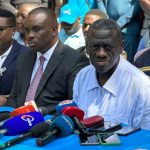Legal experts warn that the East African Community’s structural emphasis on trade at the expense of security, which its peers such as the Economic Community of West African States (Ecowas) and the Intergovernmental Authority on Development (Igad) prioritise, will continue to undermine its integration agenda.
“The EAC has the weakest and least developed peace and security architecture, compared to its sister regional economic communities or the African Union,” said Donald Deya, CEO of Arusha-based Pan African Lawyers Union.
The EAC, among other things, aims to widen and deepen cooperation among member States in economic and social areas for their mutual benefit as per the Treaty. Cooperation in trade liberalisation and development is one of the fundamental pillars of the EAC.
Member States have committed to a customs union, a common market, a monetary union and a political federation.
The EAC Treaty established the EAC Court of Justice, a judicial organ mandated to ensure the adherence to the law in the interpretation and application of, and compliance with, the Treaty.
But the court has concentrated on disputes arising out of the protocols establishing the Customs Union and Common Market, two of the four pillars that are in force.
The protocols provide for dispute settlement mechanisms but not insecurity caused by fighting within the region. The bloc’s leadership has also been seen to lack clout to forestall or even quell intra-EAC conflicts.
“The current EAC leadership is operating on the premise that the most important thing is to fast-trac’ the enlargement of the EAC by admitting new partner states, even violating the procedural safeguards built into the EAC Treaty,” Mr Deya told The EastAfrican.
“Their focus seems to be singularly on markets and not on human beings. This is myopic. The most important duty of any government, and any inter-governmental entity, is to protect lives, and to imbue those lives with dignity. Our leadership behaves like Emperor Nero — playing his fiddle as Rome burns!”
Compared with West Africa, the Ecowas Judicial Council plays a crucial role in the resolution of disputes among member states, ensuring that conflicts are resolved peacefully and in accordance with the rule of law.
Though the bloc was established for economic promotion, no meaningful economic growth can take place in a state of confusion and violence or war zone. It became imperative to ensure peace and manage crises.
The current situation in DR Congo has been blamed on poor leadership within the current EAC leadership of South Sudan President Salva Kiir, whose country is also embroiled in internal conflict.
The Peace and Security Protocol was signed on February 15, 2013 in Dar es Salaam, and the then five EAC states were given one year to ratify it. The protocol outlines co-operation in ensuring peace and security for the region and in combating crime.
It spells out 20 objectives for fostering regional peace and security, including the deployment of an EAC force to intervene in conflicts among partner states.
On this basis, the EAC deployed a regional force for the first time in Eastern Congo in 2022. Just over a year, the DRC government decided not to renew the mandate of the East African Community Regional Force past its December 8, 2023 expiration.
“Some contingents of the regional force made it clear when they arrived that they were not going to fight the M23,” said President Felix Tshisekedi. “If the results of its mission are not satisfactory, they will have to leave Congolese territory definitively.”
President Tshisekedi accused the force of not only being ineffective but also of colluding with rebels as the EAC’s explanation fell on deaf ears. The exit of EACRF exposed the regional bloc’s conflict resolution mechanism weakness.
“The most important challenge facing East Africa, and indeed most of Africa, is a spectacular lack of leadership. Improvements can be made to the legal instruments, the institutions, the policies, rules or regulations that we use to make interventions, at the level of the EAC, Igad, and the AU,” Mr Deya said.
“But our biggest problem is not that we can tinker with these documents or processes. Our biggest problem is that our present leadership lacks the outrage at the deaths, carnage, conflict-related sexual violence, and lack the moral backbone, and proactive determination to do anything meaningful about it.”
During the original EAC member countries, Tanzania’s first President Julius Nyerere did not have “instruments” or “peace and security architecture” at his disposal, when he used his moral authority to make interventions in Burundi or Rwanda, which led to the two countries’ respective Arusha Accords.
The same can be said about his invasion of Uganda to remove dictator Idi Amin Dada. Nobody in Africa seriously opposed or criticised him.
Kenya’s Daniel arap Moi also led interventions that led to the changes in Sudan, the creation of South Sudan, and in Somalia.
Since the closure of the border between Rwanda and Burundi late last year, the EAC leadership has only raised concerns over interstate relations between partner states.
“The Community’s operational principles provide that our integration is people-centred and that all our undertakings should strictly observe this spirit. In the event of any dispute arising between two or more Partner States, it is expected that we use the existing EAC Dispute Resolution Mechanism that fully respects the integrity and sovereignty of our Partner States,” said Dr Peter Mathuki, the EAC Secretary-General.



